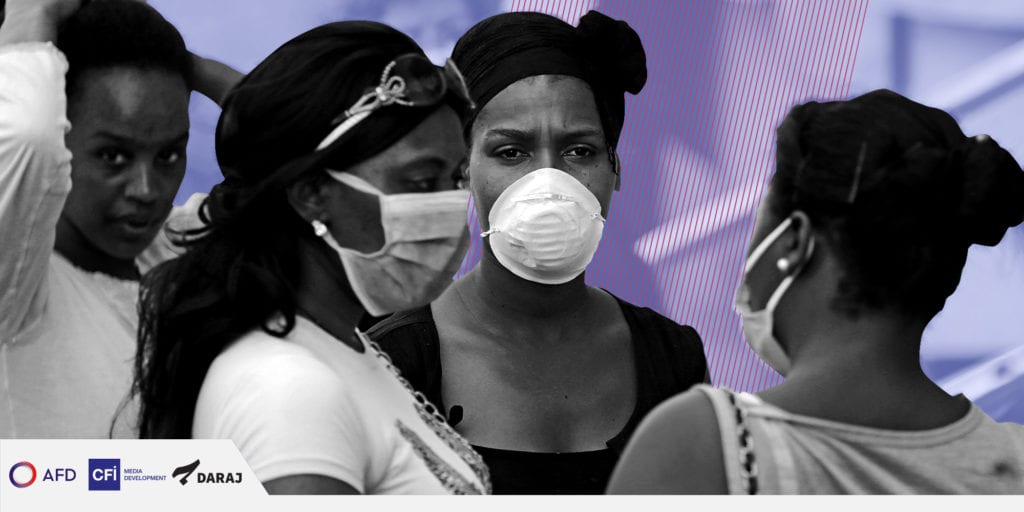“All I want is to go back to my house and children, even if we only have water and bread,” said Catherine, a Kenyan worker protesting in front of the Kenyan consulate in Beirut.
The 40-year-old is a single mother of two. She left her country for Lebanon about a year ago with the aim of educating her children and treating her elderly father. However, she has not received her salary for nine months.
Her employer took advantage of her. He forced her to work in three different homes, without pay.
“If I had received my salary, my father could have survived. He died because I couldn’t pay his medical bills,” said Catherine, looking at a photograph of her father on oxygen lying on a hospital bed. He looks emaciated.
Catherine takes out another picture. It shows two children, the eldest of whom is 16. They were forced to leave school as their mother can no longer pay their school fees. Worse, they are sleeping on the street, as Catherine has not been able to pay the rent for months.
“I don’t want what I am owed,’ she said. “I just want to go back home and see my children.” Adding: “My employer always scolded me. He said I was moody because I refused to eat sometimes. But how can I eat knowing my children are hungry in the street?”
Catherine is one of some 30 workers sleeping outside the Kenyan consulate in Beirut. “We want to go home,” is the phrase that unites the tragic stories of the workers gathered there. Despite their troubles, they refuse to file a complaint against the people or institutions they worked for, as the legal process often ends in their deportation.
No Trust
“Foreign workers don’t trust the judicial system, and know that there is no serious protection for them in Lebanon,” said lawyer Mohana Ishaq, Head of Legal Affairs and Advocacy in the Anti-Human Trafficking Department at KAFA (Enough).
The length of the trial alone robs most workers of any desire to go to court and pushes them to compromise instead. This is what happened to Catherine.
Read Also:
Remaining in Lebanon is really no longer an option for foreign workers. They are obliged to try to collect their dues. Sleeping in front of a consulate has become an all too common sight in Lebanon, especially since the Beirut port explosion and the worsening economic crisis, which saw payment of their salaries being suspended indefinitely.
Their purchasing value has fallen sharply. Many get their salaries in Lebanese pounds, according to the exchange rate that suits their employer. All this comes in the absence of a labor law that protects them in emergency situations and can free them from the harness of the Kafala sponsorship system.
With all this pressure, and the narrow scope of solutions available, the only way out is to leave Lebanon immediately. And this is what the 30 workers at the Kenyan consulate have called for.
At a government level, Minister of Labor Mustafa Bayram contacted the Director General of Public Security, Abbas Ibrahim, who promised to take appropriate action. But the paradox is that members of the security forces are being besieged by the workers, who bully them and force them to open the way, knowing that KAFA is following up their cases.
According to Ishaq, KAFA seeks to return the workers to their countries as soon as possible in cooperation with the organization Global Migration.
KAFA also provided a shelter for the protesting workers. “But they preferred to stay on the street as a means of pressure to speed up travel procedures,” said Ishaq.
The Aggressor is Free. The Critic is Questioned
The abuse of foreign workers is not limited to withholding their salaries, but extends to practices that to a large extent can be perceived as slavery.
The Kafala sponsorship system offers the employer or “agent” the right to seize a foreign worker’s passport, to not specify working hours and deprive him or her of a weekly day off. Not to mention the psychological and physical violence targeting especially female foreign workers.
All of this threatens their personal safety and wellbeing, which could lead to suicide. According to the Ethiopian consulate, 36 Ethiopian workers in 2019 died in mysterious circumstances. The latest manifestation of violent and racist practices was documented on video. It showed a man assaulting a foreign worker and dragging her onto the streets of Jouret al-Bulout in Mount Lebanon.
The attacker was detained for a few hours. Yet, the security forces quickly released him after the worker signed a statement in which she said that “her employer treated her well,” even though she had been subjected to physical violence regularly and had not received her salary for five months.
“According to the Lebanese penal code, an incident of violence and abuse that leads to a disruption of less than 15 days, requires a personal claim in order for the public prosecutor to move,” said lawyer Mohana Ishaq.
Issam Abu Joudeh, mayor of Jorat Al Ballout, came out justifying the attack and denouncing the town’s good image being distorted.
“The worker tried to escape and was arrested,” he claimed. It is a charge often used to blame the worker. As is the accusation of theft. KAFA documented many cases of workers being accused of trying to escape or theft. In the absence of a clear mechanism on how to end workers’ contracts, the employer resorts to accusing a worker of theft …
Ironically, while the assailant was quickly released after being interrogated, the Internal Security Forces’ Cybercrime Office summoned activist Doumit Al-Kazzi Derby to come in on charges of defamation. This due to a complaint filed by town mayor Issam Abu Joudeh, after Doumit had dared criticize him on his Twitter account.
The latter told Daraj he was not surprised by what happened. He was no stranger to the summoning system, while the aggressor walks free. It is expected that the Ministry of Labor will open an investigation into the attack. At least, that is what Labor Minister Mustafa Bayram said in a statement regarding the incident.
But there is no hope for justice for the assault or accountability of the aggressor, as the Lebanese authorities continue to fail to protect the rights of migrant domestic workers. The Kafala sponsorship system only facilitates their exploitation, and has helped shape the idea that the foreign worker is somehow “property of the owner.”
Read Also:








